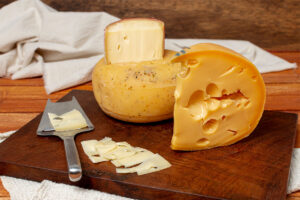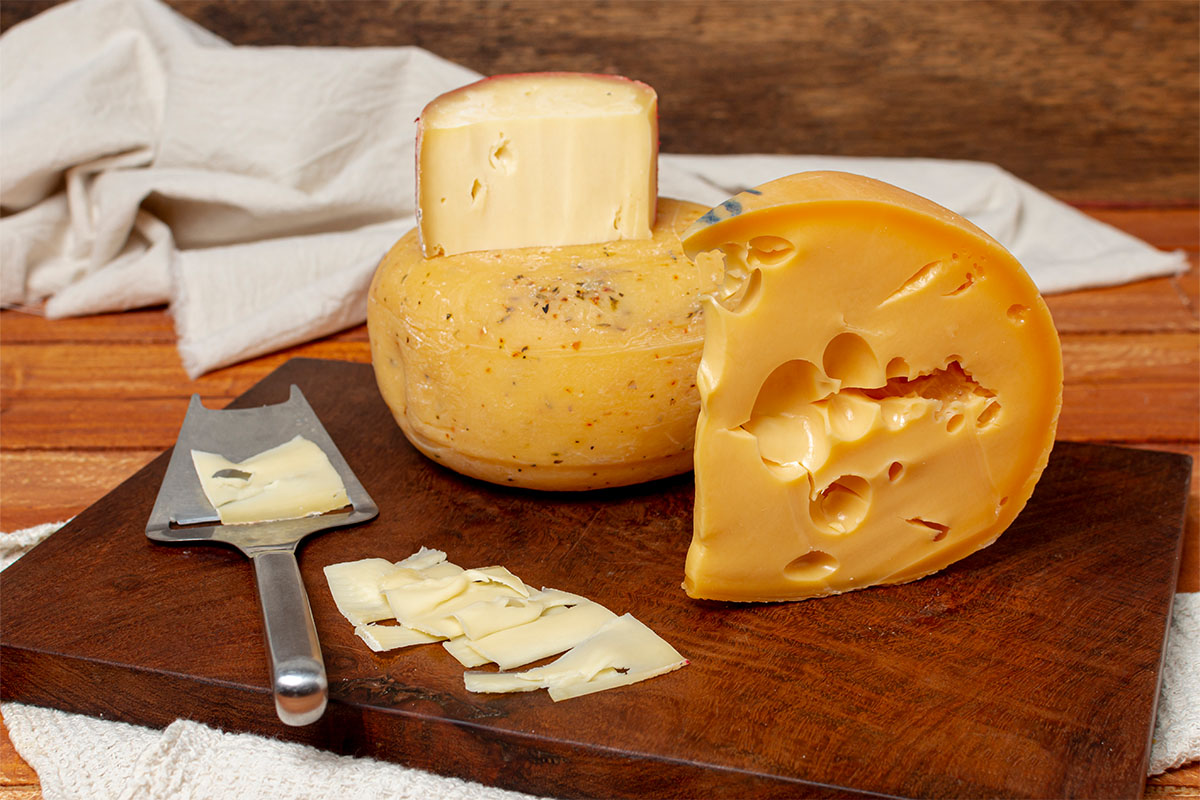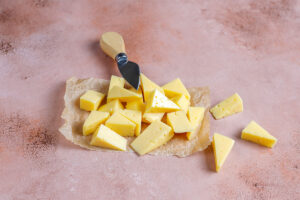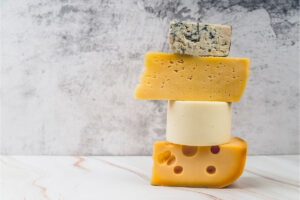Is Gruyère Cheese the Same as Swiss Cheese?
Gruyère and Swiss cheese may both come from Switzerland, but they are far from identical. While Gruyère is known for its rich flavor and smooth, dense texture, Swiss cheese – commonly referring to Emmental – offers a milder, lighter taste with its iconic holes. Understanding their unique characteristics will help you choose the right cheese for your needs.
What Makes Gruyère Different?
Gruyère originates in the Gruyères region of Switzerland and follows strict AOP-certified production standards. This ensures consistent quality and a distinct flavor profile. Gruyère is nutty, slightly salty, and becomes more robust with age. In contrast, Swiss cheese, such as Emmental, has a sweet, mild flavor and its airy texture comes with holes formed during the aging process.
Key Differences Between Gruyère and Swiss Cheese
Flavor: Gruyère is nutty, complex, and slightly salty, while Swiss cheese is sweet, mild, and light. Texture: Gruyère is dense, smooth, and hole-free, whereas Swiss cheese is elastic and airy with characteristic “eyes” (holes). These differences make Gruyère a favorite for dishes needing depth and creaminess, while Swiss cheese complements milder, simpler meals.
How to Use Gruyère and Swiss Cheese in Cooking
Gruyère works exceptionally well in:
- Fondue for its smooth melting properties
- Gratins and casseroles where it adds richness and texture
- French onion soup as a melty, flavorful topping
Swiss cheese is ideal for: - Sandwiches and wraps as a mild, melty addition
- Burgers where it complements other ingredients without overpowering
- Snack boards paired with fruits, nuts, and crackers
For ideas on incorporating Gruyère into recipes, check out How to Use Gruyère in Cooking for delicious meal suggestions.
Why Are They Often Confused?
The confusion comes from their shared Swiss origins. However, Gruyère is a specific cheese with a protected designation, whereas Swiss cheese often refers to Emmental or similar varieties. Gruyère’s nutty complexity and smooth texture make it stand apart as a premium choice. If you’re curious about other cheeses similar to Gruyère, visit Cheeses Comparable to Gruyère for helpful alternatives.
FAQs About Gruyère and Swiss Cheese
What is the biggest difference between Gruyère and Swiss cheese? Gruyère is nutty, complex, and dense, while Swiss cheese is milder and features holes. Can Swiss cheese replace Gruyère? Swiss cheese can substitute in certain recipes, but it lacks the richness and depth of Gruyère. Which cheese melts better? Gruyère melts more evenly, making it perfect for creamy dishes like fondue and gratins.
Conclusion
Although Gruyère and Swiss cheese share Swiss heritage, Gruyère’s rich flavor and smooth, hole-free texture make it the superior choice for recipes that demand complexity. Swiss cheese, while lighter and milder, works well for simpler dishes and snacks. Knowing these differences allows you to pick the perfect cheese for any recipe.




